Source: www.bawa.asn.au
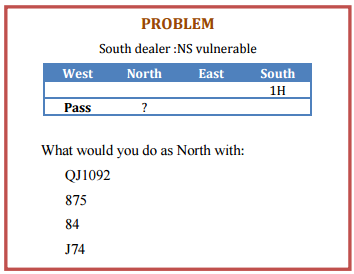
If you play Standard American or Acol, you pass partner’s 1-opening at your peril even if you have fewer than five points. Because the 1-opening has such a widerange, it is easy to miss a game when opener has a strong, shapely hand. At teams this can be particularly expensive when your side is vulnerable.
This deal arose in the semi-finals of the 2000 North American Trials:
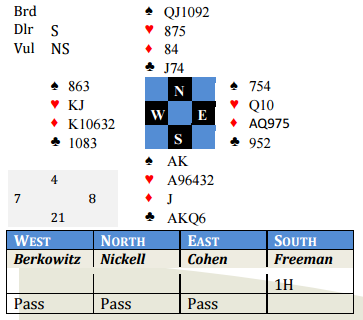
At the other table:
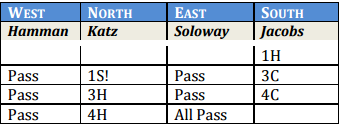
If the jump-shift to 3 is forcing to game, North would bid 4H, fast arrival. If 3
is forcing to game, North would bid 4H, fast arrival. If 3 is only a oneround force, North can bid 3
is only a oneround force, North can bid 3 , hoping to subside there. Of course, South would never stop below game. That is why he cue-bid 4
, hoping to subside there. Of course, South would never stop below game. That is why he cue-bid 4 to show slam interest. Despite the poor texture in hearts, it would not be dreadful for South to open 2
to show slam interest. Despite the poor texture in hearts, it would not be dreadful for South to open 2 . After all South has five quick tricks and only three losers. One could imagine the partnership missing 6
. After all South has five quick tricks and only three losers. One could imagine the partnership missing 6 if 1
if 1 is passed out and North has:
is passed out and North has:  873
873  5
5  9862
9862  J10953.
J10953.
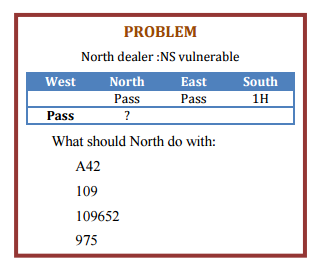
The problem in the previous example featured a deal from the semi-finals of the 2000 North American Trials where it cost a game if responder declined to respond, even though responder held only 4 HCP. The same loss occurred on this deal from the final of the same event and for the same reason:
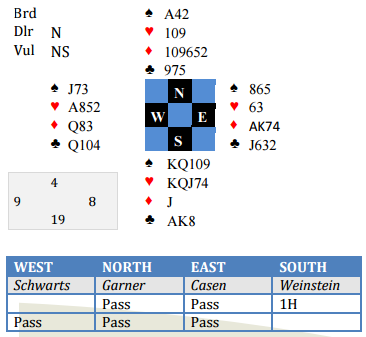
Lead:  3
3
While the heart game here is not marvellous, it is certainly respectable at teams when vulnerable. Declarer made ten tricks for +170. At the other table: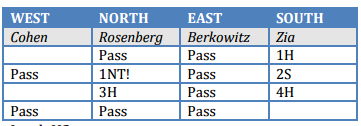
Lead:  2
2
Give South a sixth heart instead of the  8 and 4
8 and 4 is a super spot, not one you will reach if you pass 1
is a super spot, not one you will reach if you pass 1 . Note North’s preference to 3
. Note North’s preference to 3 . Declarer was able to remove West’s trumps and picked the spade position for ten tricks, +620 and +10 Imps.
. Declarer was able to remove West’s trumps and picked the spade position for ten tricks, +620 and +10 Imps.
If the meek will inherit the earth those who pass a one-opening will be land barons


